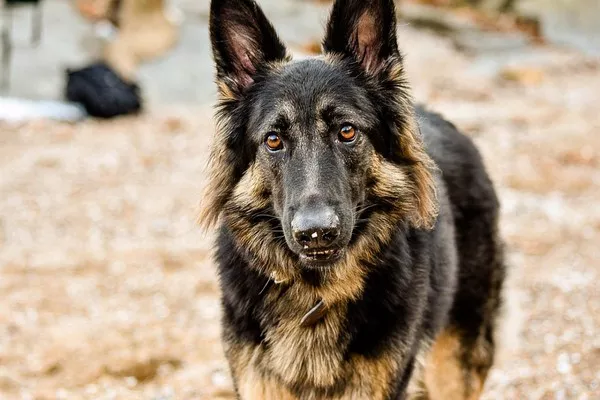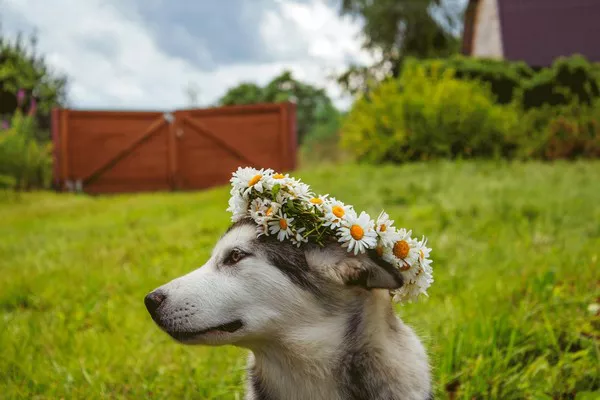The Alaskan Malamute is a majestic and powerful Arctic breed known for its strength, endurance, and loyalty. As potential owners or current caretakers of this magnificent breed, understanding their lifespan is crucial for providing the best care and ensuring a fulfilling life for our canine companions. In this article, we will explore the factors that influence the lifespan of an Alaskan Malamute and offer essential tips to promote a long and healthy life for these remarkable dogs.
Average Lifespan of Alaskan Malamutes
Alaskan Malamutes, known for their strength, endurance, and loyalty, typically have an average lifespan of around 10 to 14 years. However, it is essential to remember that the lifespan of any dog can be influenced by various factors, and individual Malamutes may live longer or shorter lives based on their genetics, overall health, and quality of care.
Genetics and Breeding: The genetics of an Alaskan Malamute play a significant role in determining its lifespan. Reputable breeders focus on responsible breeding practices, which include health screenings and genetic testing to reduce the risk of hereditary health issues in the breed. By selecting healthy and well-bred parents, breeders can increase the chances of producing puppies with a longer life expectancy.
Size and Weight: The size and weight of an Alaskan Malamute can impact its lifespan. Larger dogs, in general, tend to have shorter lifespans than smaller breeds. Maintaining a healthy weight throughout the dog’s life is crucial, as obesity can lead to various health issues that may shorten their lifespan.
Health and Medical Care: Regular veterinary check-ups and proper medical care are essential for a Malamute’s well-being. Early detection and treatment of health issues can significantly impact their overall lifespan. Some health conditions that can affect Malamutes include hip dysplasia, cataracts, hypothyroidism, and heart problems. With proper care and management, many of these conditions can be addressed, allowing the dog to lead a more comfortable and extended life.
Nutrition and Diet: Providing a balanced and nutritious diet is vital for promoting a long and healthy life in Alaskan Malamutes. High-quality dog food that meets their specific nutritional needs, based on their age, size, and activity level, is crucial. Avoiding overfeeding and providing appropriate portion sizes can help prevent obesity-related health issues.
Exercise and Mental Stimulation: Alaskan Malamutes are an active and energetic breed that requires regular exercise and mental stimulation. Engaging them in daily walks, play sessions, and activities that allow them to use their natural instincts can contribute to their physical and mental well-being, potentially extending their lifespan.
Stress Reduction: Reducing stress in a Malamute’s life is essential for their overall health. Providing a calm and nurturing environment, avoiding exposure to loud noises or chaotic situations, and ensuring they have a comfortable and safe space to retreat to can help reduce stress and improve their quality of life.
Dental Care and Grooming: Proper dental care and grooming are vital components of a Malamute’s overall health. Regularly brushing their teeth, providing dental chews or toys, and scheduling professional dental cleanings can prevent dental issues that may impact their lifespan. Regular grooming, including brushing their thick double coat and keeping their ears clean and nails trimmed, contributes to their physical well-being.
Genetics and Breed-Specific Health Concerns
Genetics play a significant role in determining a dog’s lifespan. Reputable breeders focus on responsible breeding practices to reduce the risk of hereditary health issues in Alaskan Malamutes. However, like all breeds, Malamutes are susceptible to certain health conditions, including hip dysplasia, cataracts, hypothyroidism, and heart problems. Regular veterinary check-ups and health screenings can aid in early detection and effective management of potential health concerns.
Nutrition and Diet
Nutrition and diet are crucial factors in ensuring the health, well-being, and longevity of Alaskan Malamutes. Providing a balanced and appropriate diet is essential for these large and active dogs, as their nutritional needs vary throughout different life stages.
High-Quality Dog Food: Choosing a high-quality commercial dog food that is specifically formulated for large and active breeds is the foundation of a Malamute’s diet. Look for dog food that contains real meat as the primary ingredient, providing essential proteins for muscle development and maintenance.
Protein: Protein is a crucial component of a Malamute’s diet. As a working and athletic breed, they require a higher percentage of protein to support their active lifestyle. Look for dog food with a protein content of around 25% to 30%. Sources of protein can include chicken, beef, fish, and lamb.
Healthy Fats: Healthy fats are essential for maintaining the Malamute’s energy levels and promoting a healthy coat and skin. Look for dog food that contains omega-3 and omega-6 fatty acids from sources like fish oil, flaxseed, or chicken fat.
Carbohydrates: Carbohydrates provide a source of energy for the Malamute, but they should be from wholesome sources like whole grains (brown rice, oats) and vegetables rather than fillers or artificial additives.
Avoid Fillers and Artificial Additives: Steer clear of dog food that contains fillers, artificial preservatives, colors, or flavors. These additives offer little to no nutritional value and may be detrimental to your Malamute’s health in the long run.
Feeding Schedule: Establish a regular feeding schedule for your Malamute to maintain consistent energy levels and prevent overeating. Depending on their age and activity level, Malamutes may require two to three meals per day.
Portion Control: Avoid overfeeding your Malamute, as obesity can lead to various health issues and shorten their lifespan. Refer to the dog food’s packaging guidelines and consult with your veterinarian to determine the appropriate portion sizes based on your dog’s weight and activity level.
Fresh Water: Provide fresh, clean water at all times. Staying well-hydrated is vital for the overall health and proper functioning of your Malamute’s body.
Age-Specific Nutrition: As Malamutes age, their nutritional needs may change. Senior Malamutes may benefit from dog food formulated for older dogs, which often contain ingredients to support joint health and digestion.
Special Dietary Requirements: Some Malamutes may have specific dietary requirements or sensitivities. If your Malamute has allergies or other health concerns, consult with your veterinarian to find the best diet for their individual needs.
Exercise and Mental Stimulation
Alaskan Malamutes are an active and energetic breed that requires regular exercise and mental stimulation. Engage your Malamute in daily walks, play sessions, and activities that allow them to use their natural instincts. Providing ample opportunities for physical and mental enrichment can contribute to a healthier and happier life.
Weight Management
Maintaining a healthy weight is vital for Alaskan Malamutes. Obesity can lead to joint problems and other health complications that may reduce their lifespan. Monitor your dog’s weight and adjust their diet and exercise routine as needed to ensure they stay at an ideal weight.
Dental Care
Dental health significantly impacts a dog’s overall well-being. Regularly brush your Malamute’s teeth, provide dental chews or toys, and schedule professional dental cleanings as recommended by your veterinarian. Good oral hygiene can prevent dental issues and promote a longer and healthier life.
Regular Vet Check-ups
Regular veterinary check-ups are essential for monitoring your Malamute’s health and detecting any potential health issues early on. Annual examinations, vaccinations, and preventive care are crucial components of a comprehensive health plan for your furry companion.
Proper Grooming
Regular grooming not only keeps your Malamute looking beautiful but also contributes to their health. Brush their thick double coat to remove loose hair and prevent matting. Keep their ears clean and nails trimmed to avoid infections and discomfort.
Stress Reduction
Reducing stress in your Malamute’s life is beneficial for their overall health. Provide a calm and nurturing environment, avoid unnecessary exposure to loud noises or chaotic situations, and ensure they have a comfortable and safe space to retreat to when needed.
Conclusion
The average lifespan of an Alaskan Malamute is around 10 to 14 years, but individual factors can influence their longevity. Responsible breeding, proper nutrition, regular exercise, and regular veterinary care all contribute to a longer and healthier life for these magnificent Arctic dogs. By understanding their specific needs and providing attentive care, owners can ensure that their Alaskan Malamutes enjoy a happy and fulfilled life as beloved companions for many years to come.
Related Topics:


























